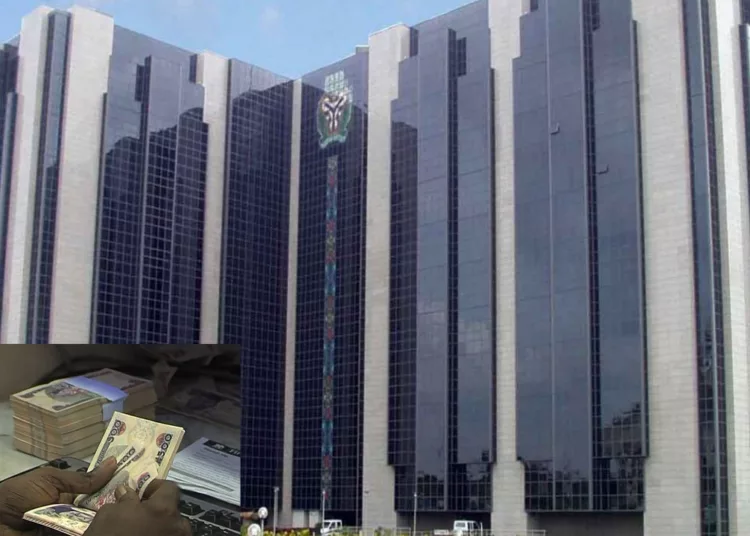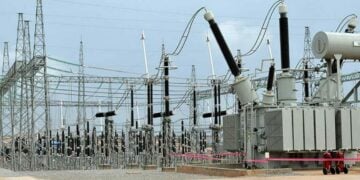Investors are currently favouring investment in Treasury bills and bonds ahead of private sector funding amid high interest rates, LEADERSHIP learnt.
Capital is a vital ingredient for economic growth, but since most nations cannot meet their total capital requirements from internal resources alone, they turn to foreign investors.
Hence, the Central Bank of Nigeria (CBN), since the first quarter of this year, has sold trillions worth of treasury bills at near record interest rates in a move to mop up excess cash liquidity in the economy in a bid to tame inflation. The interest rate on CBN’s Treasury bills have ranged between 19 per cent and 22 per cent near the Monetary Policy Rate (MPR) of 24.75 per cent.
Meanwhile, the outcome of the Monetary Policy Committee (MPC) meeting on March 26, 2024, had led to raise in the Monetary Policy Rate (MPR) by 200 basis points to 24.75 per cent from 22.75 per cent; and retention of Cash Reserve Ratio (CRR) of Deposit Money Banks at 45.0 per cent pose a major risk to the financial intermediation role of banks in the Nigerian economy.
This is constraining the capacity of banks to support economic growth and investment, especially in the real sector of the economy because the increases are quite significant.
Speaking on this issue, the director-general of Lagos Chamber of Commerce and Industry (LCCI), Dr. Chinyere Almona, urged the apex bank to reconsider its decision on interest rate hike.
She acknowledged the Central Bank of Nigeria’s (CBN) goals of curbing inflation and stabilising the exchange rate as praiseworthy but emphasised the need for these objectives to be achieved without impeding private sector endeavours and economic expansion.
Almona highlighted that the rate hike policy of the apex bank particularly impacted Small and Medium Enterprises (SMEs), pointing out that SMEs, which typically operate on narrow profit margins, depend significantly on access to cost-effective credit to maintain their business activities and foster growth.
She stated that, “the recent hikes in the MPR have directly translated into higher interest rates, making it more expensive for businesses to access credit for working capital, expansion, and sustainability.
“We have consistently advised that rate hikes alone will not curb inflation without resolving challenges of the real sector of the economy. The real sector has demonstrated the capacity to create more jobs, manufacture products for consumption and export, and sustain the industrial base of the economy.
“While we understand that high-interest rates attract Foreign Portfolio Investments and local investors to treasury bills and bonds, we lament the drying up of funds away from the private sector to government treasuries,”
On his part, the director-general of Manufacturers Association of Nigeria (MAN), Segun Ajayi-Kadir stated that, the higher cost of doing business will be further exacerbated by the decision of MPC, thereby worsening competitiveness of Nigerian products in the global market, which is evident in the drastic reduction in global demand for these products.
He added that the exorbitant lending rate of over 30 percent has contributed largely to a drop in the share of manufacturing export to non-oil export from 82.4 per cent to 24.8 per cent in 2019 and 2023 respectively.
Ajayi-Kadir urged the MPC to carefully consider the impact of these monetary policy measures on the manufacturing sector and the broader economy, saying it is crucial to strike a balance between addressing macroeconomic challenges and supporting the growth and sustainability of the manufacturing industry.
The CEO of Centre for the Promotion of Private Enterprise (CPPE), Dr. Muda Yusuf explained that bank lending has been constrained by the high CRR, saying, “the credit situation in the economy is already very tight, with lending rate ranging between 25 -30 per cent. The Nigerian banks are yet to live up to their financial intermediation role because of these constraining factors.”
According to Yusuf, the new dramatic increase in MPR to 22.5 per cent hike means that the cost of credit to the few private sector that have exposure to bank credits will increase which will impact their operating costs, prices of their products and profit margins, amidst very challenging operating conditions.
“It is thus imperative for the CBN to accelerate the process of increased capitalization of the development finance institutions to create a concessionary financing window for the real sector and the small businesses,” he pointed out.





